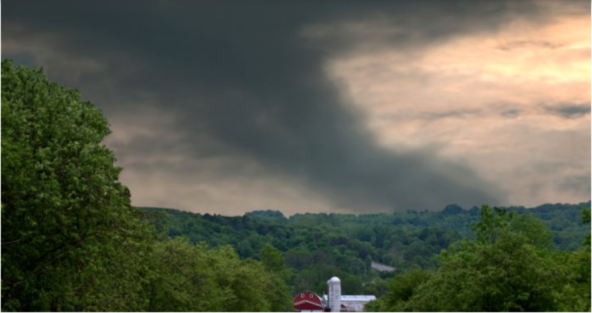By Rachel Happe, Co-Founder and Principal of The Community Roundtable
The complexity of the world is at our fingertips. It’s in our faces and on our screens. We are deluged daily with information we don’t have time to process. Anxiety drugs and self-medication are rampant. The political climate has become angry and destructive.

Some days it seems like the world is broken.
We are technically more connected than ever, but emotionally more isolated.
Untethering ourselves from geographic limitations has not brought us closer together. Instead, it’s allowed us to find and surround ourselves with those like ourselves, creating echo chambers of truths that others can’t see. When we do disagree, we feel OK saying awful things to each other online, because we no longer see the effect of our words on people’s faces. Our collective empathy has diminished.
You need only go to Facebook, Twitter or Reddit for examples of awful behavior and language. At best, it’s enough to make you forsake social media; at worst, it is destroying lives – allowing bullying, racism, misogyny and hate to share the same channels as dialog, empathy, constructive solutions and interesting ideas. And what is happening online has spilled out into the real world – in both wonderful and catastrophic ways.
How did this happen?
More importantly, how can we fix it?
If you are a student of complexity theory and systems, you start to see the simplicity in what looks like an impossible tangle. Complex systems are made up of fractals – small, similar elements that, when aggregated, create something that seems much more complicated. In human systems, those fractals are our small – seemingly insignificant – behaviors: how we speak to and interact with each other. These fractals, because they are active vs. inert, are also catalysts, triggering other compounding behaviors in response.
In the digital world, behaviors go viral – and quickly trigger shock waves of reverberating behaviors, which are often more impactful and wider spread than the original behavior. In person, it is much easier to curtail extreme behaviors because of the limited audience. Online, where one person can speak directly to millions, extreme behaviors – and the reverberation of responses to them – spread like wildfire and are all but impossible to contain.
The strategies that society used to limit the influence and impact of extreme behavior – parental discipline, school & workplace harassment procedures, tuning out the town crazy person, isolating socially offensive behaviors – are grossly insufficient for the digital world. In a world where vitriol can spread so quickly, reacting after the fact is insufficient. The damage is done.
So what’s the alternative?
Instead of reacting, we need to proactively define the cultural, communications and behavior norms we want and that will create something meaningful – and ensure that those norms are the easiest to exhibit and most rewarded. This is the discipline of community management.
Strategic community management orchestrates environments in such a way that negative behavior is squashed and constructive behavior is highlighted, mirrored, encouraged and enabled. Community management is cultural risk management in a world where your culture is what attracts and retains customers and employees. The culture of the ecosystem you cultivate is your digital calling card – and more powerful than any single piece of content or product you can create.
The large public social networks and communities have, in my opinion, done our society a disservice in washing their hands of responsibility for the behaviors and language used on their sites – and ensured that legally they are not required to. These social networking sites and companies see themselves as technology companies, responsible primarily for reducing the friction of communication. But we know how much impact infrastructure has on behavior. Social networks make it as easy (maybe even easier) for those who behave badly as for those who use the technology constructively. To claim no responsibility is disingenuous at best and, from my perspective, the biggest longterm risk to their business, at worst.
This move by Nextdoor, then, was a welcome departure. It is an acknowledgement that easy (‘frictionless’) is not always better and that the technology plays a major role in the behavior of people on its social network. It’s an acknowledgement that some types of engagement are not always better than no engagement at all. This is no surprise to the legions of parents who extol their children that ‘if you don’t have anything nice to say, don’t say anything at all’.
One of the 5 risks of not having community management is what I call ‘a circling storm’ and it’s when legitimate issues are percolating in a community and there is no one stepping in to acknowledge the issues, ensure the right people are involved in the conversation or helping to address them. This is what is happening at a broader level online – and digital culture poorer for it, letting the loudest but not the most constructive voices too often overwhelm the conversation, making it an uncomfortable place for too many.
We know from our work in community management that you can orchestrate culture. It takes a combination of design, governance and programming. It’s the heart of community management. It is possible – and now that digital culture is increasingly ALL culture, it’s becoming more urgent than ever.
